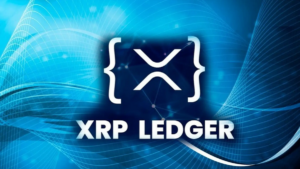TL;DR:
- Joseph Lubin introduced a Linea-based token economy platform aimed at expanding global prediction markets.
- The initiative seeks to replace centralized decision-making with collective intelligence powered by liquidity and participation.
- Built on Lubin’s Ethereum legacy, the project positions Linea as a platform uniting token incentives with transparent governance, though critics remain skeptical about scalability and trust.
In a move that could redefine how markets and governance connect, Joseph Lubin, founder of ConsenSys, unveiled a new token economy platform built on Linea. The project aims to expand blockchain-based prediction markets globally, using liquidity and community intelligence to shape decisions that once depended on centralized intermediaries. The initiative signals a possible turning point for decentralized governance, where markets, not hierarchies, become the engines of collective insight.
Vision for Decentralized Governance Through Prediction Markets
Lubin introduced the platform as a launch hub for prediction-market ecosystems such as Polymarket and MYRIAD, with the goal of accelerating their integration across industries. The platform’s purpose is to turn prediction markets into trusted tools for real-time consensus, allowing global participants to express expectations through market activity. Once liquidity and adoption deepen, these systems could enable governance guided by data and participation instead of authority and bias.
At its core, the idea reflects a philosophical shift. Lubin believes prediction-market principles can apply beyond finance, shaping decisions in policy, governance, and even social structures. By capturing collective intelligence through transparent markets, he envisions a system less vulnerable to manipulation or central control. Critics, however, question whether prediction markets can truly manage complex decisions outside specific domains, raising doubts about scalability and societal trust.
Lubin’s reputation as a co-founder of Ethereum adds weight to his vision. His long advocacy for decentralized systems now converges with Linea’s ambition to build scalable token economies. The Linea platform, already sparking discussion around ecosystem rewards and token utility, represents a testing ground for merging economic incentives with participatory governance.
As the crypto sector observes, the success of this token economy will depend on whether it can translate speculative energy into sustainable decision-making. If prediction markets can achieve that, they may evolve from niche financial tools into a new foundation for democratic coordination in the digital age.











